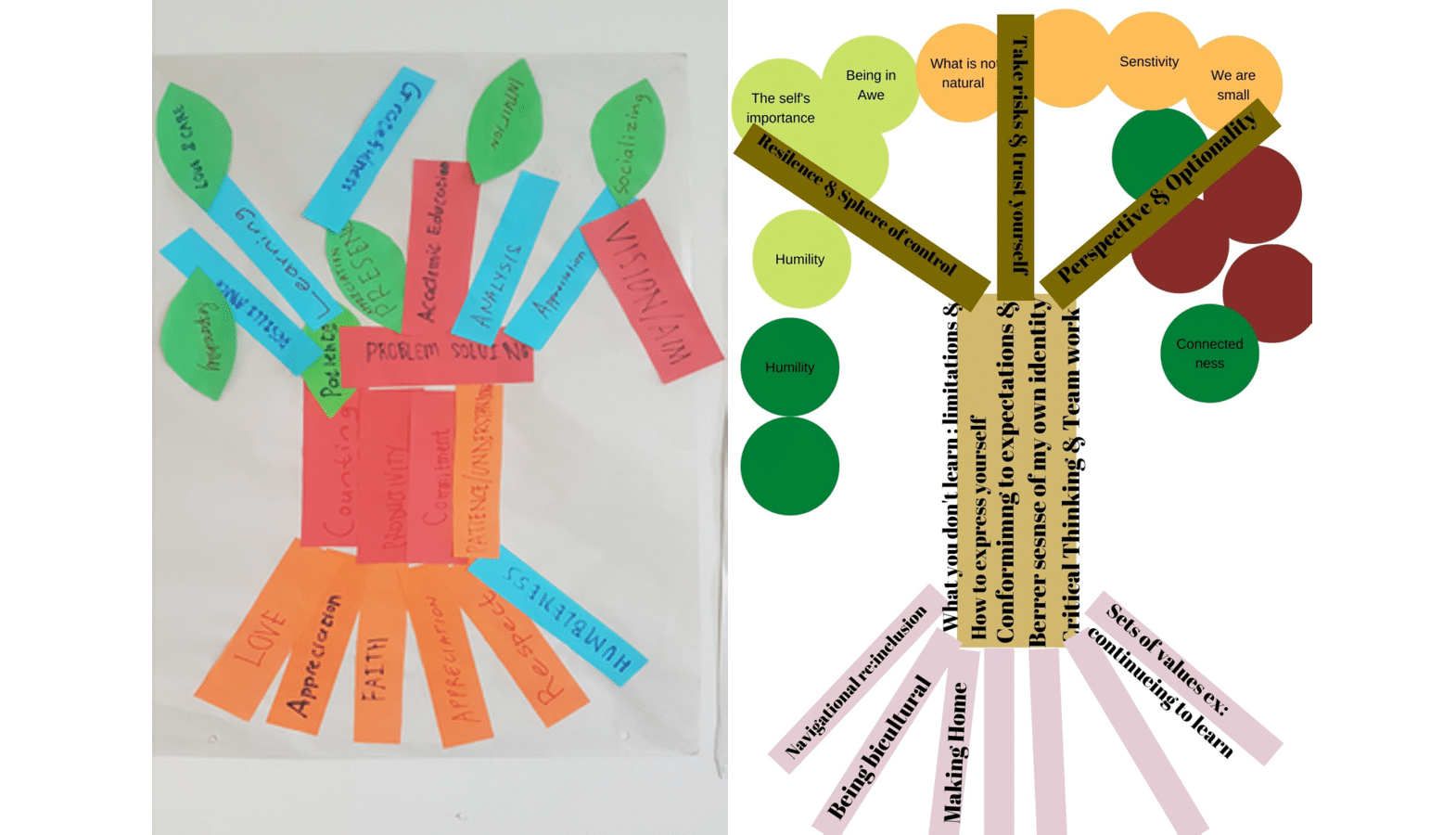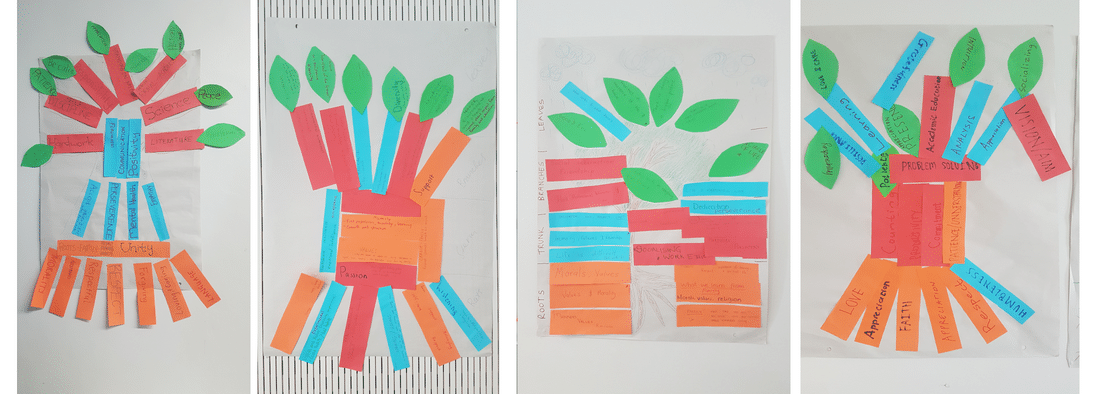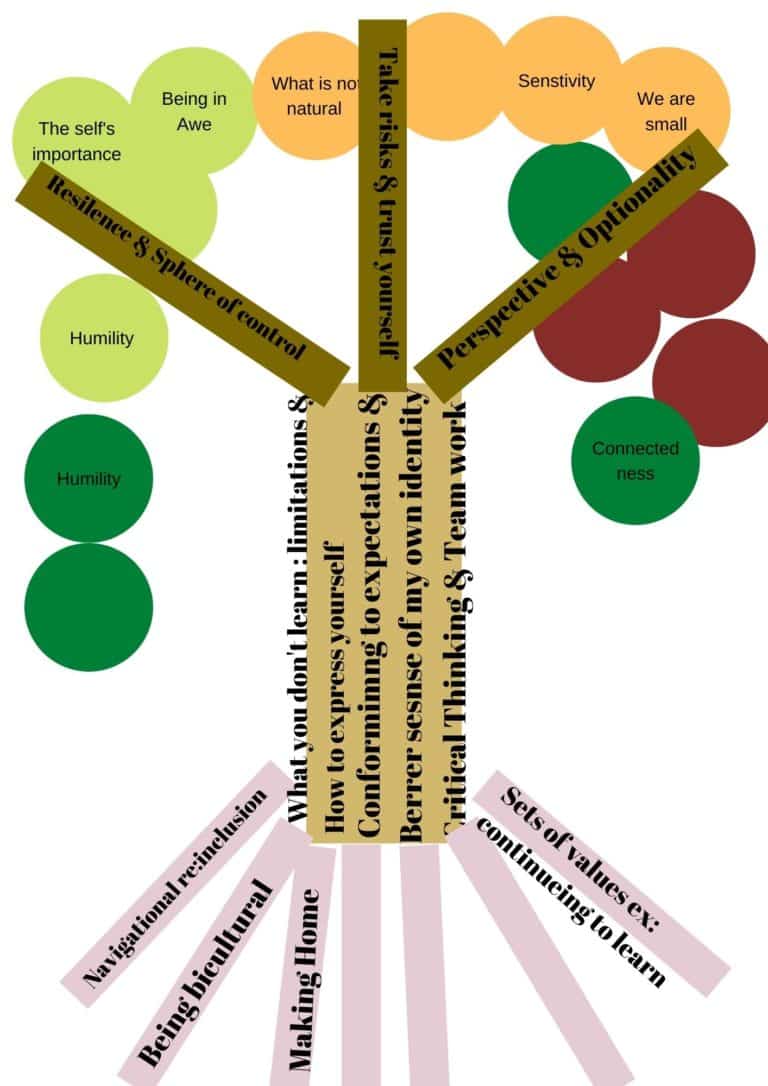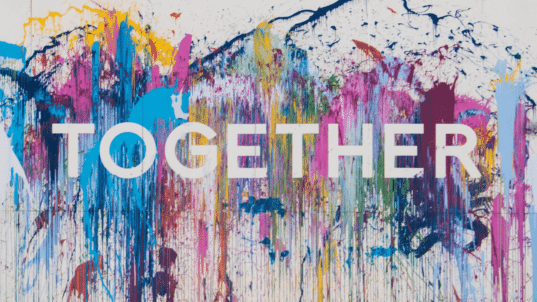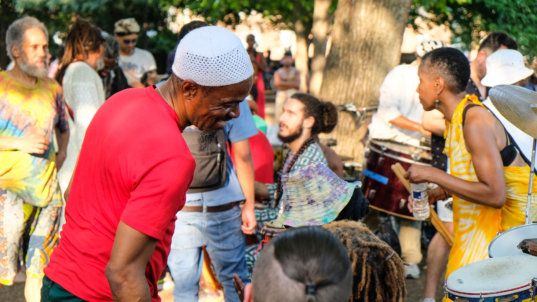Crafting Knowledge Trees
Dear collaborative discussion friends,
This week we are highlighting a fun activity that helps participants tease out all the different kinds of knowledge they have gained throughout their lives. They will also explore the various sources of this knowledge. This activity allows participants to dive deeper and build on their experiences as a group.
This activity can be found in the Civic Collaboration Module, contributed by Janice McMillan, Associate Professor based in the Centre for Innovation in Learning and Teaching at the University of Cape Town in South Africa.
If you missed our previous newsletter, Encouraging Bold Imagination, you can access it and our other weekly newsletters by subscribing below.
This week’s activity:
Activity 5.5 – Identifying Knowledge in the Community
Identifying different kinds of knowledge
This activity helps participants gain a deeper understanding of all the different sources of knowledge. It will help cultivate an appreciation for the various knowledge keepers in their community. They will explore the value ascribed to these different types of knowledge and who or what benefits from this valuation. By doing this activity as a group, participants will be able to expand on their ideas together and create knowledge trees that are more comprehensive and complete than if they did this activity on their own.
Prepare for the Activity
This activity can be done in person or online. If done in person, this activity will require some crafting supplies, like different colored paper, tape, markers etc. for participants to construct their knowledge trees. If done online, make sure participants have access to an online collaborative program, like Google Jamboard.
Explore Dimensions of Knowledge
Begin this activity as a full group. Invite participants to share their thoughts about different aspects of knowledge. Ask: How do you know what you know?
Explore this further by using the following prompts:
- What does the word “knowledge” mean to you? How is it different from intelligence, wisdom, experience? How might this word be expressed in other languages or contexts?
- Where does knowledge come from? Can one be born with knowledge? How does one cultivate knowledge? Can knowledge be bought? Traded? Owned?
- Who has knowledge? Who lacks it? Who is the most knowledgeable person you know?
Create Knowledge Trees
Next, invite participants to form small groups (4 – 6 ppl).
First, ask participants to use the colored paper (or the shapes tool on Jamboard) to represent different sources of knowledge. For example:
- Brown rectangles = what you learned from your family or community
- Pink rectangles = what you learned at school or through formal education
- Blue rectangles = what you learned from experiences (travel, work, life events)
- Green ovals = what you learned from nature, animals, or the environment
- Yellow circles = what you hope to learn from this workshop or class
Ask participants to reflect on what they have learned from these different sources of knowledge and have them record this on the corresponding shapes/colors.
Next, invite them to imagine all the knowledge they have acquired in their lives as a tree. In their small groups, they can start to build a shared knowledge tree together. They can start to piece together different parts of the tree while discussing where various types of knowledge belong on the tree.
Ask them to consider: Which sources of knowledge or specific things they know form the roots of their collective tree? The trunk? The branches? The leaves? The buds?
Discussants may answer this question differently. Some may consider the age of knowledge. For them, the first things they learned might constitute the roots of the tree. Others might determine that the most important or foundational knowledge should constitute the roots. Participants will discuss and navigate this together as they construct a single, collective knowledge tree.
You can refer to these Sample Knowledge Trees for inspiration.
Paper Trees
Digital Tree
Showcase Knowledge Trees & Debrief
Once complete, invite the small groups to share their knowledge trees with the full group.
Discuss:
- What was common between the trees? Different? Surprising?
- How did your group decide where to place different sources or pieces of knowledge on the tree?
- How do the knowledge trees compare to how society values different types of knowledge?
Through discussion, participants may realize that formal education is just one source of knowledge. This activity is designed to encourage them to reflect on and appreciate different sources of knowledge in their lives and communities. Hopefully, discussants have a more robust understanding of knowledge through listening and building on the ideas of others in their groups.
In addition to these debriefing questions, the full description of Activity 5.5 Identifying the Knowledge of the Community also includes reflection questions and a practice journal prompt to help participants dive deeper.
If you try out this activity, please share with us what you think:
We hope this toolkit activity helps participants develop a deeper appreciation for the different types of knowledge, especially those beyond just formal education, and the various knowledge keepers in a society.
Upcoming Events
- Mark your calendars! Our next community gathering is Friday, April 14th at 2 pm (EDT). This gathering will be a workshop exploring best practices for designing a certificate program and incorporating toolkit activities in projects or courses. All are welcome! Register here.
- We are also accepting nominations for our Pilot Coach Training for Undergraduate Students. Space will be limited. You can learn more or nominate a student by emailing me at [email protected]
Looking forward to collaborating,
Ritu Thomas & Shannon Wheatley Hartman

